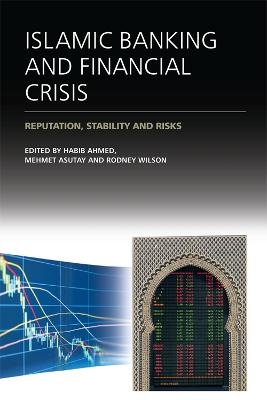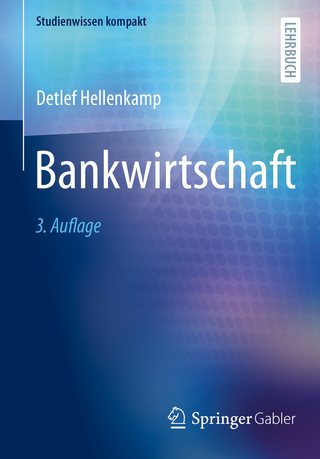
Islamic Banking and Financial Crisis
Reputation, Stability and Risks
Seiten
2013
Edinburgh University Press (Verlag)
978-0-7486-4761-3 (ISBN)
Edinburgh University Press (Verlag)
978-0-7486-4761-3 (ISBN)
Do Islamic financial institutions perform better during periods of financial stress? How do Islamic financial institutions manage risk, given their unique characteristics and the need for Shari'ah compliance? This title examines the resilience of Islamic banking during the global financial crisis and the subsequent recession.
This title examines the resilience of Islamic banking during the global financial crisis and the subsequent recession. Do Islamic financial institutions perform better during periods of financial stress? How do Islamic financial institutions manage risk, given their unique characteristics and the need for Shari'ah compliance? This volume looks at the challenges for Islamic financial institutions in an international post-Basel II system where banks are required to have more capital and liquidity. It also examines the influence of governance on client and investor perceptions and their implications for institutional stability and sustainability. It assesses how Islamic banks weathered the financial crisis and what lessons can be learnt. It focuses on liquidity risk and the use of forward contracts to mitigate currency risk. It appraises the work of internal Shari'ah audit units and the use of Shari'ah reports to reduce non-compliance risks. It includes case studies from the Gulf, Malaysia, the UK, Pakistan, Turkey and GCC countries. It appraises the work of internal Shari'ah audit units and the use of Shari'ah reports to reduce non-compliance risks.
This title examines the resilience of Islamic banking during the global financial crisis and the subsequent recession. Do Islamic financial institutions perform better during periods of financial stress? How do Islamic financial institutions manage risk, given their unique characteristics and the need for Shari'ah compliance? This volume looks at the challenges for Islamic financial institutions in an international post-Basel II system where banks are required to have more capital and liquidity. It also examines the influence of governance on client and investor perceptions and their implications for institutional stability and sustainability. It assesses how Islamic banks weathered the financial crisis and what lessons can be learnt. It focuses on liquidity risk and the use of forward contracts to mitigate currency risk. It appraises the work of internal Shari'ah audit units and the use of Shari'ah reports to reduce non-compliance risks. It includes case studies from the Gulf, Malaysia, the UK, Pakistan, Turkey and GCC countries. It appraises the work of internal Shari'ah audit units and the use of Shari'ah reports to reduce non-compliance risks.
Habib Ahmed is Sharjah Chair in Islamic Law and Finance at Durham University. Mehmet Asutay is Senior Lecturer in Political Economy at the University of Durham. Rodney Wilson was founder of the Islamic Finance Programme at Durham University. He is now an Emeritus Professor in Durham and Visiting Professor at the Qatar Faculty of Islamic Studies.
| Erscheint lt. Verlag | 30.11.2013 |
|---|---|
| Zusatzinfo | 34 black and white illustrations, 24 black and white tables |
| Verlagsort | Edinburgh |
| Sprache | englisch |
| Maße | 156 x 234 mm |
| Themenwelt | Sozialwissenschaften ► Soziologie ► Spezielle Soziologien |
| Wirtschaft ► Betriebswirtschaft / Management ► Finanzierung | |
| Betriebswirtschaft / Management ► Spezielle Betriebswirtschaftslehre ► Bankbetriebslehre | |
| Wirtschaft ► Volkswirtschaftslehre ► Finanzwissenschaft | |
| ISBN-10 | 0-7486-4761-9 / 0748647619 |
| ISBN-13 | 978-0-7486-4761-3 / 9780748647613 |
| Zustand | Neuware |
| Haben Sie eine Frage zum Produkt? |
Mehr entdecken
aus dem Bereich
aus dem Bereich
denken und handeln wie ein professioneller Trader
Buch | Softcover (2023)
Vahlen, Franz (Verlag)
36,90 €


